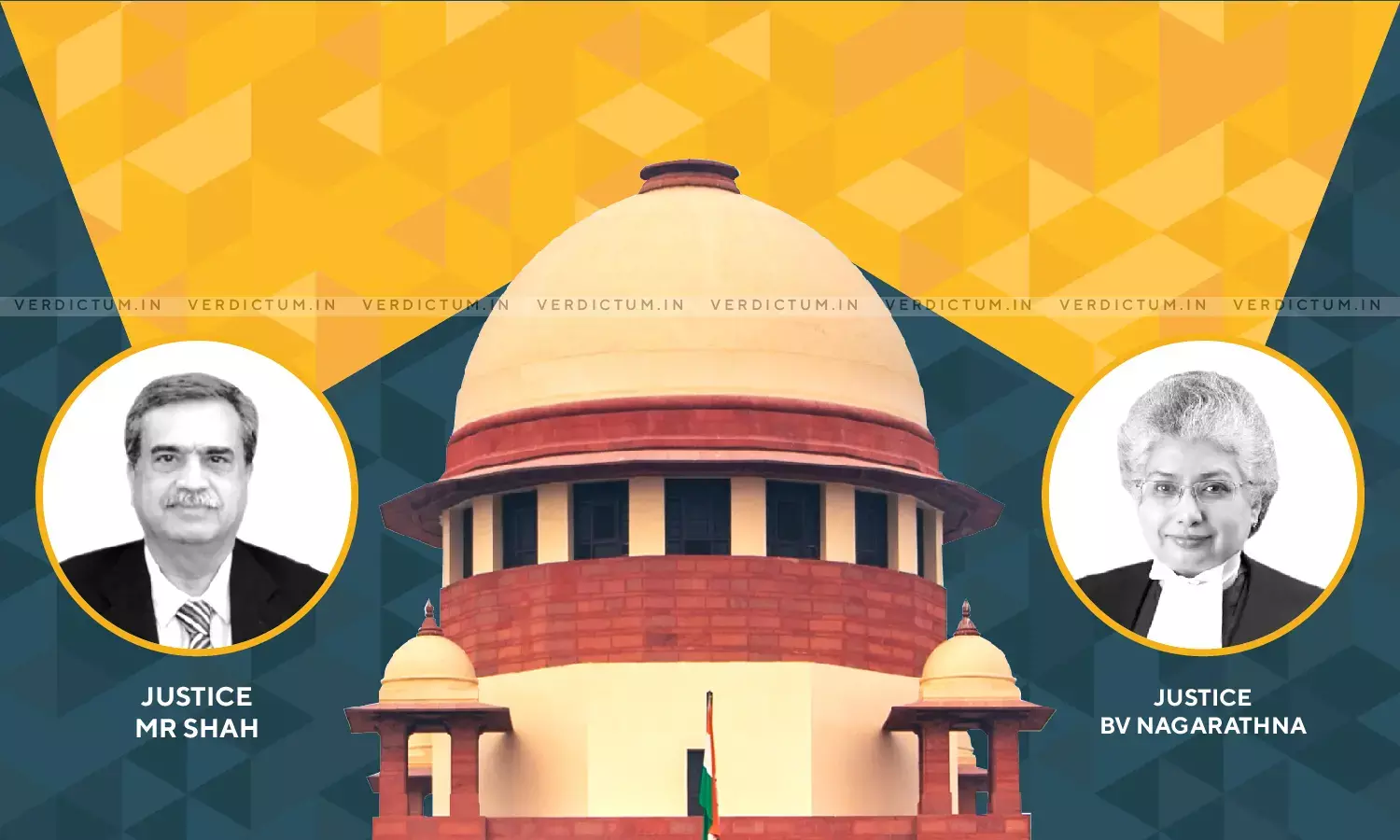Differential Treatment Of Similarly Placed Employees: SC Grants Pensionary Benefit To University Employee Despite Non-Entitlement As Per Rules

A Supreme Court Bench consisting of Justice MR Shah and Justice BV Nagarathna has reiterated that an employee is entitled for the pensionary benefit on retirement based upon the law existing at the time of retirement. The Court has also held that service rules should be applied uniformly on all employees and that similarly placed employees should not be treated differently.
"While we accept the settled position of law that the rule applicable in matters of determination of pension is that which exists at the time of retirement, we are unable to find any legal basis in the action of the respondent University of selectively allowing the benefit of Rule 25 (a). The law, as recognized by this Court in Deoki Nandan Prasad and Syed Yousuddin Ahmed (supra) unequivocally states that the pension payable to an employee on retirement shall be determined on the rules existing at the time of retirement. However, the law does not allow the employer to apply the rules differently in relation to persons who are similarly situated," the Bench ruled.
The Court heard the Civil Appeal in the case of Dr. G. Sadasivan Nair Vs. Cochin University of Science and Technology and Others. The Court set aside the judgments passed by the Single Judge Bench, that was confirmed by the Division Bench of the Kerala High Court and asked the Respondent University to give the pensionary benefits to the Appellant, who had retired as a professor of law.
Senior Counsel Dr. K.P. Kylasanatha Pillay appeared on behalf of the Appellant, Counsel Malini Poduval appeared for Respondent and Counsel G. Prakash appeared on behalf of the State of Kerala.
In this case, the Bench decided applicability of Rule 25 (a), Part III, Kerala Service Rules (KSR) which provides that experience at the Bar could be reckoned as qualifying service for the purpose of determining superannuation pension, subject to a condition that only a person who was recruited into service after attaining the age of 25 years could avail such benefit.
The Appellant was appointed as a Lecturer in the School of Legal Studies of the Respondent with effect from September 7, 1984. Prior to his appointment, he was a lawyer practising in the District Court and Subordinate Courts for the period between 11th March 1972 and 2nd February 1980.
On November 10, 2004, he made a representation before the Registrar of the Respondent, requesting to reckon his practice of eight years at the Bar for the purpose of determining his pensionary benefits payable to him on his superannuation.
He relied on Rule 25 (a), Part III, Kerala Service Rules which was inserted on February 12, 1985, after he joined the service. The Registrar of the Respondent University denied the benefit on the ground that experience at the Bar was not essential for appointment to teaching posts at the University and therefore, the question of reckoning previous experience at the Bar would not arise in relation to the appellant, in the light of the amendment.
However, as per the appellant, a similar benefit was granted in the case of another professor who worked in the University. Therefore he filed a writ petition before the High Court. The Single Judge dismissed the writ petition on the ground that it was open to the Government to unilaterally alter the service conditions of employees during their service and therefore, what was applicable was the rule prevailing as on the date of retirement and not that which existed as on the date of entering service. The Division Bench confirmed the order.
After hearing the parties, the Supreme Court held that the amended rule will apply to the case of the appellant. However, the Court observed that the university ought to apply the rules uniformly. The Bench held that there was no valid ground to sustain the application of the proviso in relation to the appellant, thereby denying the benefit of Rule 21 25(a), when the same was not applied in the case of the other employee, thereby allowing the benefit of Rule 25(a).
"We are of the view that if the respondent University sought to deny the benefit of Rule 25 (a), in light of the proviso which was subsequently inserted thereby limiting the benefit of the Rule, it ought to have done so uniformly. The proviso could have been made applicable in relation to all employees who retired from service of the respondent University following the introduction of the proviso, i.e. after 12th February 1985," the Bench stated.
"However, the action of the respondent University of selectively applying the proviso to Rule 25(a) in relation to the appellant, while not applying the said proviso in relation to similarly situated persons, is arbitrary and therefore illegal. Such discrimination, which is not based on any reasonable classification, is violative of all canons of equality which are enshrined in the Constitution of India," it further added.
Click Here to Read/Download the Judgment

